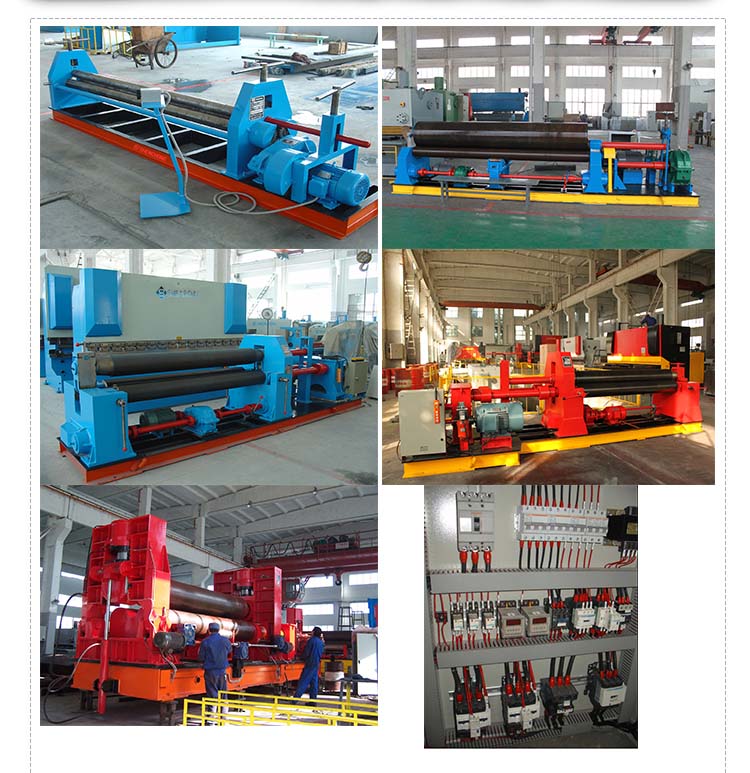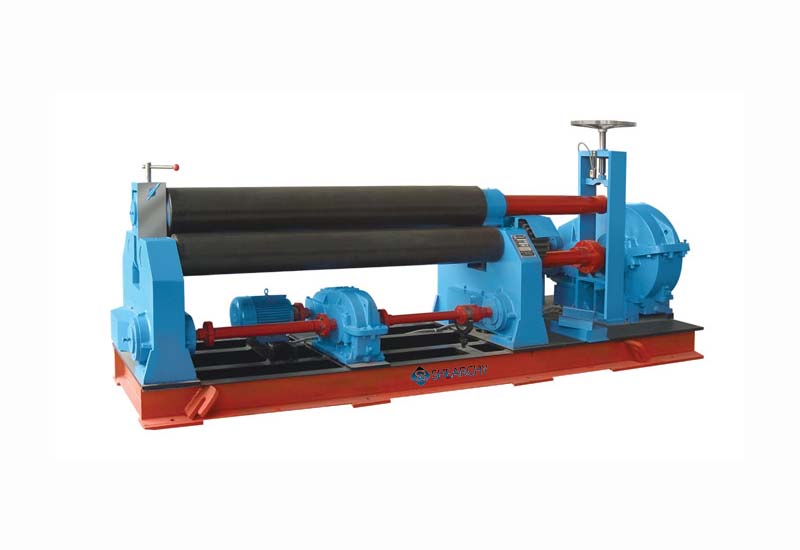Plate Rolling Machine common questions and answers summarized for users. What’s the model and price of plate bending rolls? What shapes can CNC metal roller machine adapt to roll out? What does the yield strength of rolling machines mean?
Frequently Questions & Answers about Plate Rolling Machines

Sheet Metal Roller Types & Price
What are common types of plate rollers?
Mainly divided into:
- Three rollers and four rollers
- Manual, simple numerical control (semi-automatic), full numerical control (automatic)
- Hydraulic and mechanical
Specifically, the common models are as follows:
Symmetrical 3-roll plate bending rolls, asymmetrical 3-roll bending roll machine, upper-roll universal plate roll, Level down three-roller rolling machine, simple semi-automatic plate rolling machine, electric plate rollers, small sheet metal roller, large-scale metal roller, metal bending roll for shipbuilding, 4 rolls plate roll machine, automatic metal sheet roller……
Further subdivision, according to metal plate thickness and width to specific types.
Shapes CNC Rolling Machinery roll out
3 or 4 rolls plate bending machine can form what shapes?
It is mainly used for coiling and rounding of stainless steel plate, iron plate and other metal sheets. In addition, many customers will have some special requirements when they roll metal sheets. Such as requiring to roll into ellipses, U-shaped rolls, square rolls, polygons rolls, arbitrary curves and so on.
As a professional plate rolling machine manufacturer, Shearchy will do our best to provide the best technical support and guidance for users. We can customize or recommend suitable technical solutions for customers according to the requirements of different metal parts. Elliptical coiling, U-shaped coiling, square coiling, polygon coiling, arbitrary curve coiling can be realized. Volume ellipse, U-shape, square, polygon and arbitrary curve can be all realized.
Yield Strength of Bending Roller
What is the yield strength of sheet metal roll?
It refers to the yield limit of metal materials when yielding occurs. That is, the stress resisting micro-plastic deformation. For metal materials without obvious yield, the stress value of 0.2% residual deformation is defined as the yield limit. It is also called conditional yield limit or yield strength.
External force is greater than this limit. That will cause permanent deformation of parts and can not be recovered. For example: the yield limit of low carbon steel is 207MPa. When the external force is greater than 207MPa, the work piece will produce permanent deformation. Less than it, the work piece will return to their original appearance. When considering the roll forming quality and shape of metal sheets, we should take it into account.
Of course, don’t worry! If you cooperate a reliable factory, you just need to send us the work pieces drawings and processing requirements. And our technical team will calculate, design and consider everything for you!

